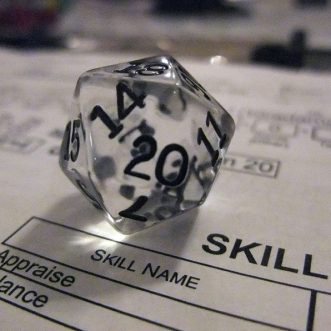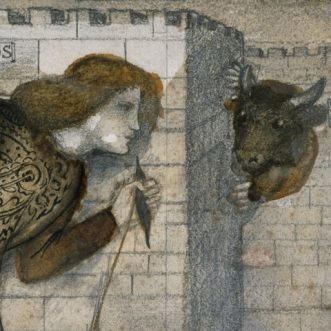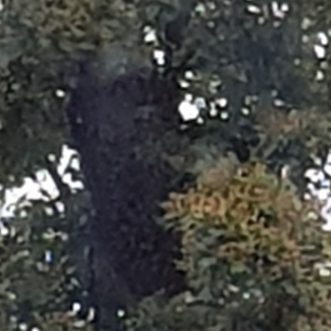June 7, 2021
We had some unexpected guests yesterday. The first I knew of it was the sound.
‘What on earth is that noise?’
I looked up from cleaning the floor, and there they were, a mass of bees madly buzzing across 3 neighbouring gardens. 15 minutes later, they were clumped together near the top of our hawthorn tree.
I looked up my nearest beekeeper on the British Beekeepers Association website, (try them before you call pest control, beekeepers will give bees a good home), and Andrew came over.
We agreed that it was too dangerous for him to try and collect the bees from the tree, so he set up a bait box, to entice them down.
While we waited over a cup of tea, he taught me a bit about bees.
A hive swarms in stages. First the queen leaves, taking half the bees with her, to set up a new colony somewhere. 10 days later, her brood of queens start to hatch, along with the other eggs she’s laid.
It used to be thought that the first queen out killed the others, but research has found that isn’t the case. As each new queen hatches they replicate the original queen’s behaviour – taking off with half the hive. Only each time the half is smaller, even though the hive grows each day as new bees hatch. So each ‘cast’ becomes progressively smaller until the last is about tennis ball sized, and will be lucky to form a viable colony that can get through the following winter.
This it makes perfect sense. The bees are all the old queen’s children. Why kill other queens when you only need half the available resources? There is no scarcity, and so no competition for them. And why kill queens when replicating a simple process maximises the chances that the colony will survive and spread?
We humans could learn a bit from bees.
PS, they’re still in our tree. If they don’t fancy the bait box, they’ll swarm again and find a new place. If you see them, remember to give them 15 minutes to settle down, then call your local beekeeper.









